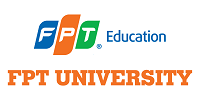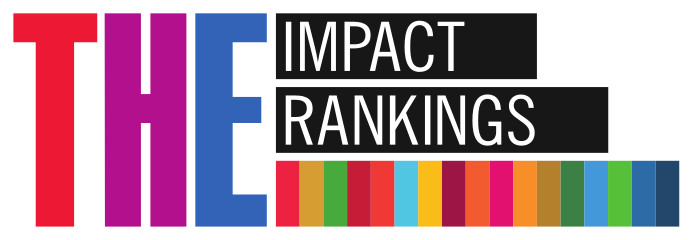Training Objectives
1.1. General objectives:
Training bachelor’s degree students in Information Technology (IT)/Information Assurance (IA) specialty to have the qualities and capacities to meet the needs of society, mastering professional knowledge and practice, being able to organize, implement and promote the creativity in jobs related to the trained specialties.
The training program aims to:
a) To equip students with fundamental knowledge of the IT industry together with fundamental and specialized methodologies, technologies related to the trained specialties;
b) Train students the necessary virtues and skills in the professional working environment, know how to apply fundamental knowledge and specialized knowledge into practical work;
c) Provide students with a strong foundation in foreign languages, science, culture and society, promoting their autonomy and creativity in study, work and life.
1.2 Specific objectives:
Graduates of the IT training program/IA specialty must demonstrate the following:
PO1. Having basic knowledge of social sciences, politics and law, security and defense, foundational knowledge of the IT industry & in-depth knowledge of the specialized training: techniques, methods, technologies, in-depth application areas; development trends in the world; at the same time understand the overall market, context, functions and tasks of the professions in the specialized training.
PO2. Be able to work as a full member of a professional team in the field of training: participate in designing, selecting techniques and technologies in line with development trends, solving technical problems; understand technology trends and user requirements; can do the complete solution development plan; performance management and change management in his or her part of the job; understand state policies in specialized fields.
PO3. Mastering professional skills and soft skills of 21st century citizens (thinking skills, work skills, skills in using work tools, life skills in a global society); at the same time, equip knowledge and sharpen the entrepreneurship mindset and entrepreneurial experience.
PO4. Can use English well in study and work and a second foreign language in normal communication.
PO5. Honesty, high discipline in study and work, know how to work effectively in groups; know how to behave culturally at work and in society; dynamic, creative and willing to learn constantly. Demonstrate professional attitude and behavior with the ability to conceive of ideas, design, implement and operate systems in the context of corporation and society.
– Job placement after graduation:
Engineers graduating IA specialty have diverse employment opportunities with a number of typical positions such as:
✔ Network and database security administrators;
✔ Engineers in testing and evaluating information assurance for networks and systems;
✔ Engineers in reviewing vulnerabilities, weaknesses and handling information assurance incidents;
✔ Developer in programming and developing applications to ensure information assurance;
✔ Counselor in analyzing, consulting, designing safety information systems.
Program Learning Outcomes
|
|
PLO Name | PLO Description |
| 1 | PLO1 | Demonstrate basic knowledge of social sciences, politics and law, national security and defense, contributing to the formation of worldview and scientific methodology. |
| 2 | PLO2 | Demonstrate the mindset and ability to implement start-up projects, creative spirits, critical thinking and problem-solving skills. |
| 3 | PLO3 | Communicating and working in groups effectively in academic and practical environments. |
| 4 | PLO4 | Use English proficiently in communication and learning (equivalent to level 4 according to the 6-level Foreign Language Proficiency Framework for Vietnam, IELTS 6.0 or TOEFL (paper) 575-600 or TOEFL (iBT) 90 -100); and be able to communicate simply in Japanese. |
| 5 | PLO5 | Demonstrate professional behaviors, morality, social responsibilities and a sense of dedication to community. |
| 6 | PLO6 | Be mentally and physically strong, be capable of expressing national identity and integrating confidently into the world. |
| 7 | PLO7 | Develop self-study and lifelong learning spirit and capabilities to adapt to the constant change of technology and society. |
| 8 | PLO8 | Be able to explain and apply essential mathematical knowledge related to information technology: Calculus, discrete math, linear algebra. |
| 9 | PLO9 | Be able to explain at a basic level the concepts related to computer architecture, operating systems, computer networks, databases… |
| 10 | PLO10 | Be able to apply knowledge of programming, software development (including data structures and algorithms, programming techniques, object-oriented programming…) to develop applications |
| 11 | PLO11 | Be able to explain different viewpoints on professional ethics, the role of careers in the IT field and related skills to choose the right major in the later stage. |
| 12 | PLO12 | Be able to apply knowledge of business, society, knowledge of management (especially project management) in professional work. |
| 13 | PLO13 | Be able to explain the roles and responsibilities of a IA specialist. |
| 14 | PLO14 | Apply cryptography and coding theory, models, and fundamental techniques of security to ensure assurance and safety for the organization and enterprise systems |
| 15 | PLO15 | Develop policies and solutions to protect the organization’s information assets, ensuring the requirements of availability, confidentiality, integrity, authentication, and non-repudiation. |
| 16 | PLO16 | Evaluate techniques and technologies related to information assurance, master their strengths and weaknesses. |
| 17 | PLO17 | Be able to update and exploit advanced tools and techniques in the field of information assurance in particular and IT in general term. |
| 18 | PLO18 |
Have in-depth knowledge and skills in the persuited major or extensive knowledge and skills in the major close to the persuited major. |
Volume of learning of the course
145 credits, excluding Preparation English, Military Training, compulsory and elective training activities.
Enrollment object
✔ In accordance with regulations on formal university enrollment; college enrollment of the Ministry of Education and Training.
✔ In accordance with regulations on enrollment of FPT university.
Training process, graduating conditions
✔ In accordance with regulations on formal university and college training of the Ministry of Education and Training.
✔ In accordance with regulations on training of FPT University.
Evaluation method
✔ In accordance with regulations on examination and assessment in the training regulations of FPT University.



